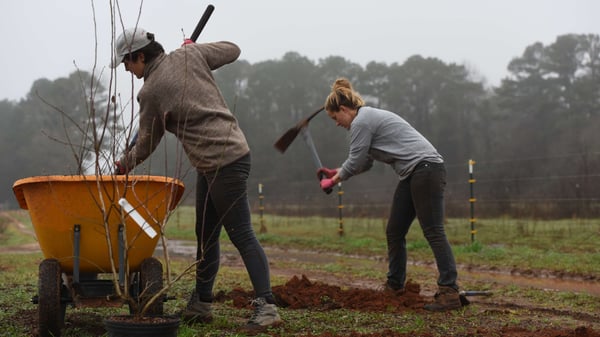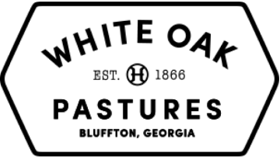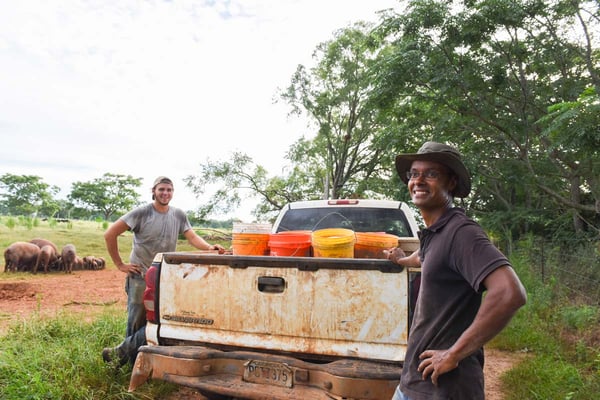
We didn’t plan to have an internship program. But as we grew our farm operations in the early 2010s, we started to field more and more questions from people interested in visiting the farm to see what we do.
As the interest grew, we formulated an internship program that was manageable for us and provided valuable experience for the intern. Our paid internship program is built for those who want to understand the farm operations on a different level.
Our internship program basics:
- We offer four 12-weeks sessions a year
- An intern can choose the number of sessions they want to stay for, and each level comes with exposure to different areas of the farm
- Regardless of background, everyone starts the internship program in the same place: a twelve week immersive session on our production teams. Interns gain exposure to all 10 different species and related departments, like carpentry and fencing.
- After the first 12-week session, interns can choose to continue to the next sessions in processing, administration (marketing, agritourism, and accounting), and a self-designed focus.
The typical participant:
- Ages range from 18 to over 60, and everything in between
- They may have experience as farmers, but many have never farmed a day in their life. They are teachers and financial analysts and workers in tech, but they are interested in learning more about regenerative agriculture.
To date, we’ve had around 45 interns. About 50% of our interns have stayed on the farm and become staff members.
.jpg?width=1200&name=WOP-Clint-Shannon-Intern%20(1).jpg)
Increased Interest During the Pandemic
In the last two sessions of 2020, we saw interest in our internship program more than double.
There was an increased interest in food production and regenerative agriculture in 2020. It’s clear that the focus now is on how farmers like us can raise livestock that’s better for the animals, the people, and the cities they surround.
As applications have increased, from the United States and even internationally, we’ve now had to implement interviews for competitive spots in our internship program.
There are many other regenerative agriculture programs available. However, we think folks are interested in spending time at White Oak Pastures because we don’t just tell people what they should do–we show them what we’ve done.
We’ve been farming with regenerative agriculture practices for 25 years, and our farm is a testament to the viability of this model of agriculture.
Training the Next Generation of Farmers
A few statistics about today’s farmers:
- The 2017 Census of Agriculture reports that the average age of an American farmer is 57.5 (up 1.2 years from 2012)
- One in four producers is a beginning farmer with 10 or fewer years of experience and an average age of 46.3
Our internship is one of a kind with regard to growth and exposure to multi-species animal agriculture and processing on the farm.
We’ve said it before, but there’s a limit to the growth we can achieve as a farm. We will not function like the multinational food conglomerates, trading in resiliency for efficiency to grow bigger and bigger and bigger.
White Oak Pastures isn’t scalable. However, as Will Harris explains, our farm is highly replicate-able. There can, and should, be a White Oak Pastures model in every rural county in the nation.
We’re putting in the work (and infrastructure) to make regenerative agriculture more replicable.
- In recent sessions, White Oak Pastures has been able to offer on-farm housing in the center of Bluffton. In 2021, we are also investing in additional housing infrastructure in Bluffton to be able to accommodate more interns.
- In addition, we’re expanding the workshops we offer on the farm, targeting farmers who are interested in learning regenerative agriculture practices in the Southeast climate.
We plan to focus on education in 2021 to show people not just what’s possible, but what we have been proving true over the last 25 years.
If you or someone you know is interested in an internship at White Oak Pastures, check out more information or submit an online application here.


